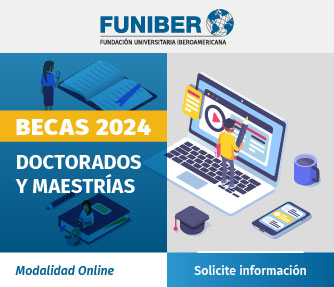Integración de la inteligencia artificial en la educación escolar impacto en la epistemología y desafíos éticos
Publicado Nov 30, 2024
Resumen
La integración de la inteligencia artificial (IA) en la educación busca redefinir los procesos educativos mediante la personalización del aprendizaje y la mejora de la eficiencia administrativa. Este avance tecnológico tiene el potencial de optimizar el contenido educativo de acuerdo con las necesidades individuales de los estudiantes, facilitando así una experiencia educativa más efectiva y centrada en el estudiante. No obstante, también han surgido preocupaciones éticas significativas relacionadas con la protección de la privacidad de los datos y el riesgo de sesgo algorítmico, que podrían comprometer la equidad educativa. Para abordar estos desafíos, es crucial implementar políticas éticas robustas que garanticen un uso transparente y equitativo de la IA en la educación, maximizando su potencial para mejorar los resultados de aprendizaje.
##plugins.themes.bootstrap3.article.details##
Cómo citar
Descargar Cita
Descargas
Biografía del autor/a
David Eduardo Leon, Tecnologico UNIVERSITAM
Analista y científico de datos con un sólido trasfondo como Ingeniero Informático y un MBA en Alta Dirección. Actualmente, doctorante en Filosofía, especializado en la investigación en ingeniería. Mi trayectoria profesional incluye liderar proyectos empresariales transformadores, pero mi pasión va mucho más allá. He tenido el privilegio de compartir mi conocimiento con jóvenes talentosos y futuros profesionales en entornos académicos, donde mi experiencia docente me ha permitido inspirar y capacitar.Citas
Anderson, T., & Dron, J. (2011). Three Generations of Distance Education Pedagogy. International Review of Research in Open and Distributed Learning, 12(3), 80-97.
Aoun, J. E. (2017). Robot-Proof: Higher Education in the Age of Artificial Intelligence. MIT Press.
Campolo, A., Sanfilippo, M., Whittaker, M., & Crawford, K. (2017). AI Now 2017 Report. AI Now Institute, New York University.
Dewey, J. (1938). Experience and Education. Kappa Delta Pi.
Du Boulay, B. (2023). Artificial intelligence in education and ethics. En M. J. Lee & S. A. J. Lee (Eds.), Handbook of open, distance and digital education (pp. 93-108). Springer. https://doi.org/10.1007/978-981-19-2080-6_6
Eynon, R., & Malmberg, L.-E. (2021). Lifelong Learning and the Internet: Who Benefits Most from Learning at the Margins? International Journal of Lifelong Education, 40(1), 29-44.
Floridi, L. (2014). The Fourth Revolution: How the Infosphere is Reshaping Human Reality. Oxford University Press.
Graham, C. R. (2013). Emerging Practice and Research in Blended Learning. Handbook of Distance Education, 3, 333-350.
Green, E., Singh, D., & Chia, R. (Eds.). (2022). AI ethics and higher education: Good practice and guidance for educators, learners, and institutions (Globethics.net Education Ethics Series No. 10). Globethics.net. https://www.globethics.net/publications
Greener, S., & Wakefield, C. (2015). Developing Confidence in the Use of Digital Tools in Learning. Interactive Technology and Smart Education, 12(1), 28-42.
Heffernan, N. T., & Koedinger, K. R. (2012). Integrating Assessment and Instruction: A Practical Approach to ITS Design. Journal of Artificial Intelligence in Education, 22(1-2), 79-116.
Holmes, W., Bialik, M., & Fadel, C. (2019). Artificial intelligence in education: Promise and implications for teaching and learning. Center for Curriculum Redesign. ISBN 978-1794293700.
Kahneman, D. (2011). Thinking, Fast and Slow. Farrar, Straus and Giroux.
Knox, J. (2020). Artificial Intelligence and Education in China. Learning, Media and Technology, 45(3), 247-259.
Luckin, R. (2018). Machine Learning and Human Intelligence: The Future of Education for the 21st Century. UCL IOE Press.
Noble, S. U. (2018). Algorithms of Oppression: How Search Engines Reinforce Racism. NYU Press.
OECD. (2022). AI and the Future of Skills: Emerging Trends and Policy Implications. OECD Publishing.
Russell, S. J., & Norvig, P. (2016). Artificial Intelligence: A Modern Approach. Pearson.
Selwyn, N. (2019). Should Robots Replace Teachers? AI and the Future of Education. Polity.
Seldon, A., & Abidoye, O. (2018). The Fourth Education Revolution: Will AI Liberate or Infantilise Humanity? University of Buckingham Press.
West, D. M. (2018). The Future of Work: Robots, AI, and Automation. Brookings Institution Press.
Williamson, B. (2020). Big Data in Education: The Digital Future of Learning, Policy and Practice. SAGE Publications.
Zawacki-Richter, O., Marín, V. I., Bond, M., & Gouverneur, F. (2019). Systematic Review of Research on Artificial Intelligence Applications in Higher Education – Where are the Educators? International Journal of Educational Technology in Higher Education, 16(1), 39.

















